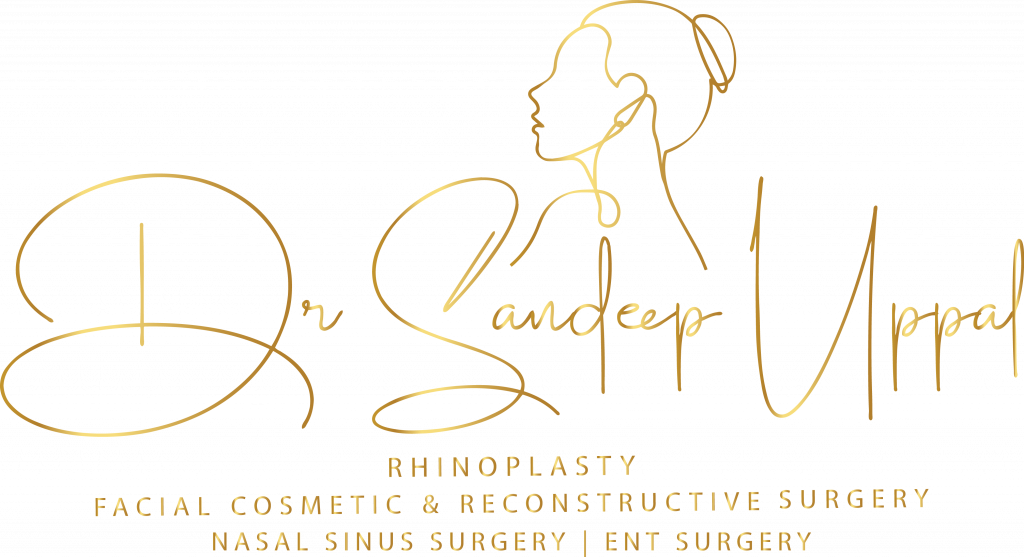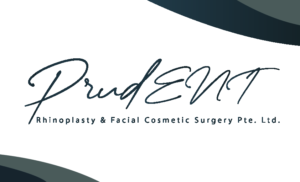INSTRUCTIONS FOR YOUR RHINOPLASTY SURGERY
TWO WEEKS BEFORE SURGERY
- Pre-operative assessment will be done in the hospital to make sure that there is no contra-indication to surgery. If needed laboratory tests and ECG will be arranged. Pre-operative photographs will be taken if they were not taken at the time of your first consultation.
- You will be provided with clear instructions about your arrival time and reporting place for the day of surgery.
- Surgery will need to be rescheduled if there is any chance you are pregnant.
- Do not take any products containing aspirin, ibuprofen, non-steroidal anti-inflammatory medication, or Vitamin E (multivitamins).
- Please check labels on over-the-counter medications. Many cold, sinus, and pain relievers contain aspirin or ibuprofen.
- Please do not take any herbal products including Chinese medicines.
- Refrain from all products including cigarettes, pipe tobacco, chew, or nicotine patch/gum. Nicotine interferes with healthy blood circulation and may affect post-operative healing and consequently the result of your surgery. It also places you at higher risk for complications when receiving anaesthesia.
- Start taking 1000mg of vitamin C three times per day. Vitamin C helps with the healing process.
ONE WEEK BEFORE SURGERY
- Do not drink alcohol for 1 week before and after surgery.
- Please inform us if you are unable to go ahead with your scheduled surgery so that the operating room time may be used to help another patient.
THE DAY BEFORE SURGERY
- If your surgery is in the morning do not eat or drink anything after midnight (this includes water, candy, and gum chewing). If the surgery is planned for later in the day, Dr Sandeep’s team will inform you about the time to stop eating and drinking before surgery.
- Surgery will be cancelled if this is not followed. A fasting state is needed to go ahead for surgery. The only exception is medication, which we will instruct you to take with a sip of water on the morning of surgery.
DAY OF SURGERY
- You may shower and shampoo the morning before surgery.
- Do not wear makeup, hair sprays or gels, or nails polish. You may leave acrylic nails on.
- Avoid clothing that must be pulled over the head. Please wear loose fitting clothing.
- Do not wear jewelry, this includes body jewelry.
- Do not bring any valuables to surgery.
- Dentures, if worn, should be left in place.
- Do not wear contact lenses but rather wear your glasses on day of surgery.
COMMON INSTRUCTIONS AFTER SURGERY
- You are encouraged to walk around the hospital/home on the day of the surgery and thereafter. This helps to prevent blood clots from forming in the legs.
- Move/pump your legs often while lying down. This helps in preventing blood clots from developing.
- Take deep breaths often when you get home for the first 24 hours after surgery. This helps to expand the base of your lungs.
- Sleep with your head elevated on 2-3 pillows. This helps to prevent increased swelling.
- Take all medications for the duration of the prescription and as instructed.
- Do not drive for 24 hours after surgery or anytime that you are taking pain medications.
- A responsible adult must provide transportation for you after surgery (public transportation is not permissible because of the risk of injury).
- Avoid making major decisions or taking part in activities requiring judgment for 24 hours after surgery.
- Do not drink alcohol for 1 week after surgery to decrease the risk of bleeding and bruising.
- Avoid bending, lifting, pulling, pushing, straining and aerobic activities for 3 weeks.
- Keep your dressings dry.
- You may bathe but not shower until post-operative day five.
- Avoid direct sunlight to the ears for at least a year.
NASAL CARE
- Keep your cast dry. It will be removed on post-operative day five. Dr Sandeep will then apply another cast for a further 5 days.
- Change drip pad under nose as needed.
- After packing is removed, use nasal saline douche (Flo sinus/Neilmed sinus rinse) three times a day for 3 weeks. This prevents dryness and crusting on the inside of the nose and helps to clear secretions and blood clots.
- Clean the incision line with hydrogen peroxide and Q tip (cotton bud) and then apply chloramphenicol eye ointment to the sutures three times a day for 5 days.
- Sutures are removed on post-operative day five.
- When the cast is removed, the nose will be quite swollen, and the nasal tip will be turned up slightly. This will settle down over the next 3-4 days, then more gradually thereafter.
- Nasal exercises will be given to you at the appropriate time. These are to keep the sides of the nose narrow and in proper alignment, along with decreasing scar tissue formation.
CARE OF INCISION (FIRST 12 DAYS)
In the morning:
- Apply a thin layer of Dermatix-ultra to the incision area– just so that you can see the shine. Continue this for 12 months.
- Heliocare SPF 30 every 1 hour if you are outside in the sun. Continue this for 12 months. Ideally avoid going into the sun, this prevents the scars from darkening.
At night:
- Triluma cream, apply to the incision area late evening after it becomes dark. Continue this for 2 months.
- Apply a thin layer of Dermatix-ultra to the incision area– just so that you can see the shine. Continue this for 12 months.
ACTIVITY – THE FIRST WEEK
- Limit your activity sharply over the first week following surgery. You are encouraged to walk about the house, but avoid bending over the waist, picking up heavy objects or straining of any kind. If you exert yourself, bleeding or prolonged swelling may result. When you rest or sleep, keep your head elevated 2-3 pillows and avoid sleeping on your side.
- Keep your emotions under control. It is not unusual to feel a bit depressed for a few days after surgery. This quickly passes as you begin to look and feel better. Anger, crying or other emotional outbursts will only add to the swelling or increase the likelihood of bleeding. Drink plenty of fluids and avoid foods that require much chewing, such as steak.
- Smoking should be strictly avoided as it interferes with the blood supply to healing tissues and slows subsequent healing. Alcohol consumption should also be limited as this may raise the blood pressure and initiate bleeding. Please avoid during the first week.
- Small amounts of food twenty minutes before taking post-operative medications can prevent nausea. If you vomit or feel nauseated, you should delay food and pain medication until the nausea subsides. If this symptom persists, call for anti-nausea medications, as subsequent vomiting may be harmful and lead to complications.
- You may bathe but not shower while the cast is in place. You may carefully wash your face with mild soap and clean wash cloth or cotton balls, but make sure the cast and stitches remain dry.
- Do not blow your nose or sniff excessively as this will only irritate the healing tissues. If you must sneeze, open your mouth.
- Do not place a cotton bud or tissue paper in your nose in an attempt to clean your nose.
- Expect nasal passages to be obstructed by swelling for at least three weeks. A humidifier may help you sleep by allowing you to breathe through your mouth more comfortably.
- You can either tape your glasses to your forehead or you can buy a small device that allows for your glasses to rest on your cheeks. This will prevent displacement of the nasal bones in the immediate post-operative period.
- Be Careful Dressing: When putting on and taking off clothing, especially shirts or tops that go over your head, be gentle and slow to avoid brushing against your nose.
- Limit Facial Expressions: Minimize extreme facial expressions, like laughing or smiling too broadly, in the initial days post-surgery.
- About three to four weeks after the surgery, the nasal bones are solid. Until then, you must be careful to avoid trauma to the nose. Try to sleep on your back since sleeping on your front or side may put pressure on the nasal bones and displace them.
AFTER THE FIRST WEEK
- It takes 6 weeks for the nasal bones to fully heal. Slowly resume your activity level. After the first week, let your body tell you how much to do. Exercise may be resumed in 3 weeks, strenuous exercise in 6 weeks. Contact and semi-contact activities are to be avoided for 4-6 months. Full swimming is allowed after 6 weeks.
- Do not expose your nose to the sun for one year. Sunburn to your nose may result in prolonged swelling, redness and discolouration. We recommend a sunscreen with an SPF of 30, to be applied every hour you are out in the sun.
- You will be instructed on specific nasal exercise at your post-operative appointments. Please make sure you follow through on these instructions as it will help to decrease scar tissue formation and swelling.
PAIN, SWELLING, BRUISING AND INFECTION
Most patients complain more of discomfort from nasal and sinus congestion than from pain. Medication to control pain will be prescribed.
Swelling and bruising about the nose, eyes and cheek is variable. Swelling maximizes at about two days and then subsides over the next 5-7 days. Do not worry if you have excess swelling around the eyes and cheeks. This will clear and not affect the final result of your surgery.
Bruising may persist a few days longer. Remember that all these effects subside in time with no effect on the final results.
BLEEDING
It is normal to have some nasal bleeding over the first twelve hours after surgery. It may be necessary to change the gauze drip-pad (nasal bolster) a dozen or so times over that period. It is normal to have a pinkish-reddish discharge from your nose and your throat for the first 2-3 weeks. If you are changing the drip pads more often than two drip pads/hour or 20-30 changes, you should call the hospital.
INFECTION
Infection is unusual after nasal surgery, but occasionally occurs. Fever, excessive pain, and swelling with redness may signify a developing infection and should be reported. Infections generally clear quickly with appropriate antibiotic treatment.
POST-OPERATIVE APPOINTMENTS FOR RHINOPLASTY
Please allow 30 minutes for each post-operative appointment.
Post-operative Day 1 | Nasal packs are removed. |
Post-operative Day 5 | This appointment usually lasts 30-45 minutes. Suture and cast removal. Application of a fresh cast. |
Post-operative Day 12 | Cast removal. |
Post-operative 3 weeks | Routine follow-up. |
Post-operative Month 1 | Routine follow-up. Injection to break scar tissue, if needed. |
Post-operative Month 3 | Routine follow-up. Injection to break scar tissue, if needed |
Post-operative Month 6 | Routine follow-up. Evaluation of result. |
Post-operative Month 12 | Routine follow-up. Evaluation of result. Assessment of final result. |
Post-operative yearly review for 5 years | Routine follow-up. Assessment to detect minor changes in shape of nose that may require attention. |
CALL US IF YOU DEVELOP ANY OF THE FOLLOWING
- Fever of 101-degree Fahrenheit (38 degree Celsius) or greater.
- Pain not relieved with pain medication.
- Swelling, redness, bleeding, and/or foul drainage from an incision site.
- Persistent nausea and/or vomiting.
- Excessive nasal bleeding-changing more than two drip pads every 20 – 30 minutes.
- Any other concerns.
EXPERIENCE EXCEPTIONAL RHINOPLASTY WITH DR SANDEEP: A SYMPHONY OF SKILL, PRECISION, AND PATIENT CARE
In the quest for facial harmony and functional improvement through rhinoplasty, the choice of surgeon is paramount. Dr Sandeep’s unique qualifications, with dual fellowship training in Facial Plastic Surgery and Advanced Rhinology, place him at the forefront of his field, offering a depth of ability that is rare and invaluable. His approach is not merely surgical but an intricate blend of science and aesthetics, ensuring outcomes that are not just pleasing to the eye but tailored to everyone’s unique facial contours.
With Dr Sandeep, you are not just choosing a surgeon; you are choosing a legacy of excellence. His role as a revered speaker on international platforms underscores his status as an esteemed educator and thought leader in rhinoplasty. Awards and recognitions like the Claus Walter Prize for Academic Excellence and honorary fellowships speak volumes of his clinical acumen and dedication to the craft.
By entrusting your rhinoplasty to Dr Sandeep, you are assured of a comprehensive experience that prioritizes your aspirations, comfort, and well-being. His meticulous technique, combined with a relentless pursuit of perfection, ensures that your journey to enhanced facial aesthetics and improved nasal function is in the most capable of hands.
Book your appointment with Dr Sandeep today.


